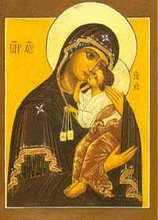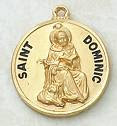I started a book about Spanish history this week and it has been very interesting so far (and the author won't quit talking about Christianity, which makes me love it all the more!). Up until I began to read this book I have been an ignoramus regarding the history of Spain. The only things I knew were the same thing everybody learns in high school - the Islamic conquest of the peninsula and associated Christian reconquest, the Spanish Armada, discovery of America and Spanish exploration of the world, the Spanish American War and Spanish Civil War were just about the extents of my knowledge. I knew tid-bits because of the books I read about St. Teresa of Avila and the Spanish monastic orders of knighthood, but that did not amount to a great deal of knowledge.
One of the things this book talked about was a poem about King Roderick who reigned over the Visigothic kingdom at the time of the Islamic conquest (711 A.D.) It reminded me of the Song of Roland, which I read was the first epic poem to come out of Medieval Europe. This does not make much sense to me now, unless the Spanish poem is not considered epic. Anyway, both Roderick and Roland are betrayed by allied generals. While both fought bravely against the Moors neither were wounded in combat against a superior and prevailing enemy force, but both died as a direct result of the battles they fought - real hero stuff! Roderick was accused of seducing Jullian's daughter and Roland was accused of coveting Ganelon's wife. Roland was immediately avenged by Charlemagne, but Roderick's successors took their time avenging his defeat. It was no less dramatic though, we hear Peyalo shouting to the Muslims from a mountain cave, "Christ is our hope! From this mountain the defeat of the Goths will be avenged. I trust that the promise of the Lord will be fulfilled." It was a hope that persisted for centuries and was finally fulfilled at the completion of the Reconquista in 1492 (just in time for the evangilization of America!).
I wrote in this post that I am very interested in Christian history and have begun to accumulate books that I think would be important to read to gain a comprehensive view of it (of course the current book I'm reading is on the list). The last book I read was about the Roman Empire and it was quite revealing. It made me think about the relationship the Eastern Church has always had with the Western Church. It also made me think of the influence that pagan Rome exerted on Christianity. The Supreme Pontiff even takes this title from the pagan religious leaders called pontiffs, lead by the pontifex maximus. While Rome was the home of Saints Peter and Paul and one of the greatest centers of Christianity ever since the birth of the Church the city never gave up much of its pagan identity even long after Saint Constantine issued the Edict of Milan. Despite a long tradition of Christian heritage and being a major center of authority, the city of Rome did not shake off the remnants of Roman Paganism until the sack of Rome by the Vandals in 455, who were allowed peaceable entry to the city and free reign of her valuables for fourteen days in exchange for safety from murder, rape and fire. Even the golden tiles were taken from the roof of Jupiter's temple.
When Julius Caesar took political control of Rome he also took religious control, taking the title of pontifex maximus for himself and setting a precedent for the emperor to lead the empire in both politics and religion. When St. Constantine arose it was a tradition of the Romans for over three hundred years for the emperor to lead the state in all regards. It was natural for him to exert control over the bishops of the Church. It was natural for both the bishops and the emperors to exercise this type of authority and we see it taking place throughout all of early Church history. The establishment of the Roman Empire was absolutely necessary for the spread of Christianity and was a key element in the timing of the birth of God even though the pagan culture exerted so much influence on the Church. That was also the reason Constantine had to move the state capital out of Rome. He moved to allow the Church to grow in a Hellenistic culture free of the pagan influence of the Eternal City. I am sure I will find much more to say later. Church history has many more centuries to grow before reaching present days.
Tuesday, June 5, 2007
Subscribe to:
Post Comments (Atom)





4 comments:
Interesting stuff.
Thanks Costa. I think so too.
I'll be in Rome this fall and am very much looking forward to viewing the Vatican museum, seeing the Sistine chapel and all the cathedrals there.
Belle,
I hope you have a good time. My thoughts have really been on Rome lately. I am reading a book about Pope Benidict, which I am thoroughly enjoying. I will be very interested in hearing about your trip too the Eternal City.
Post a Comment